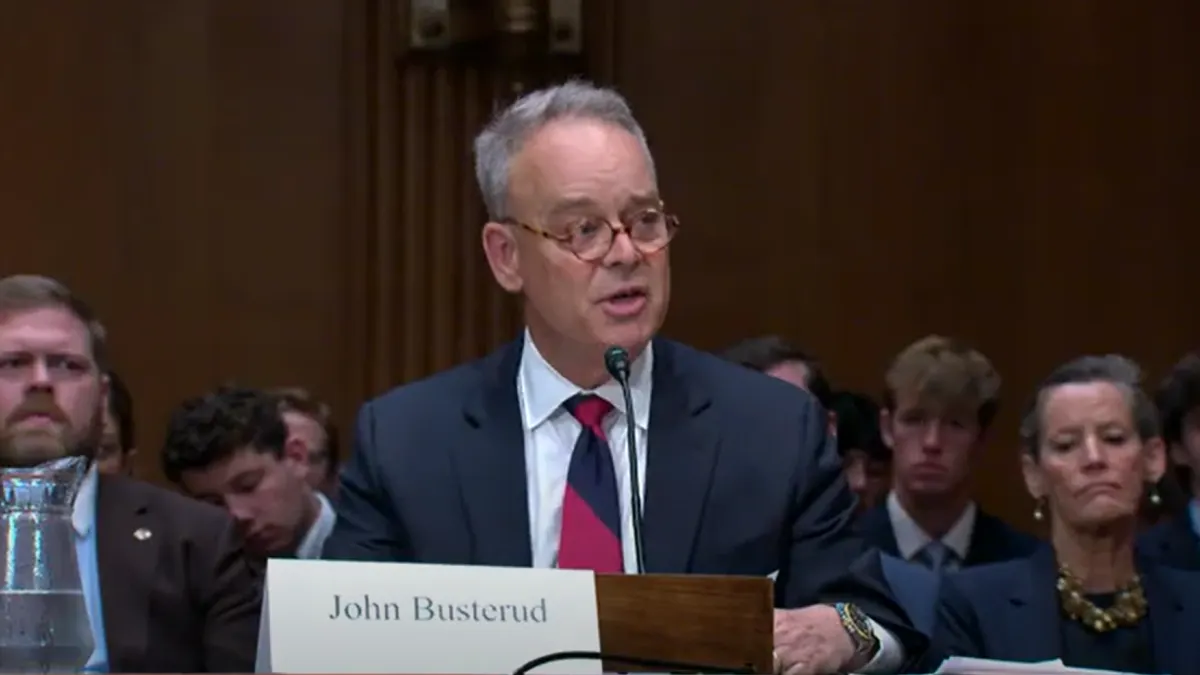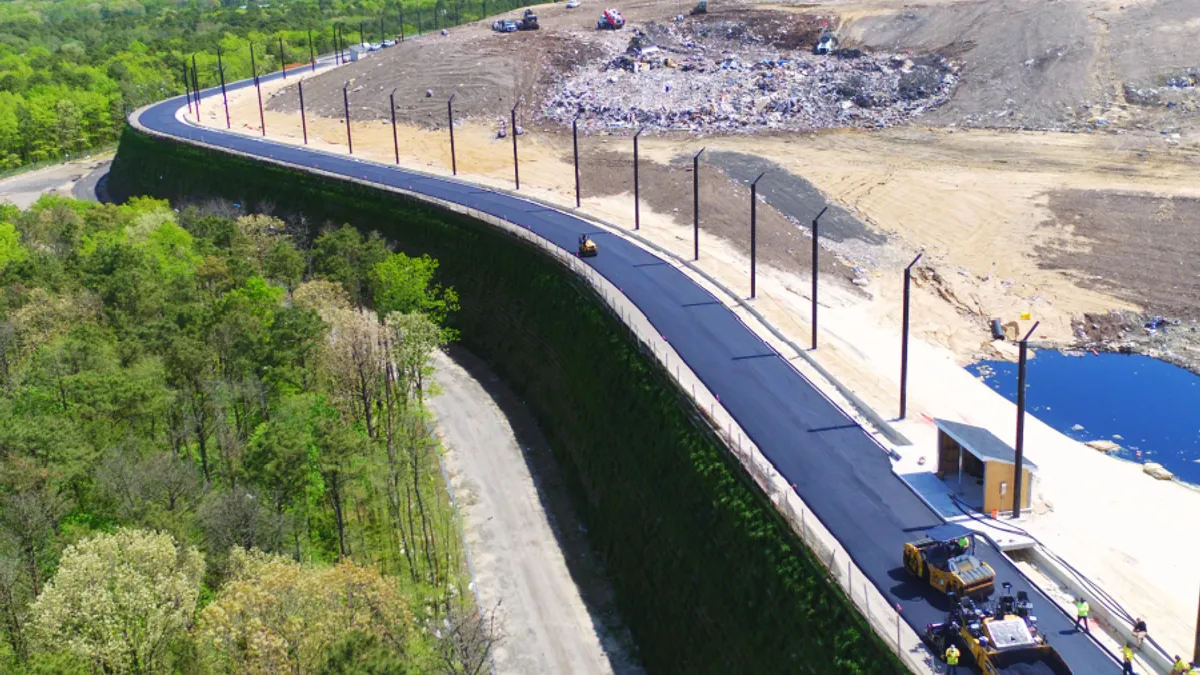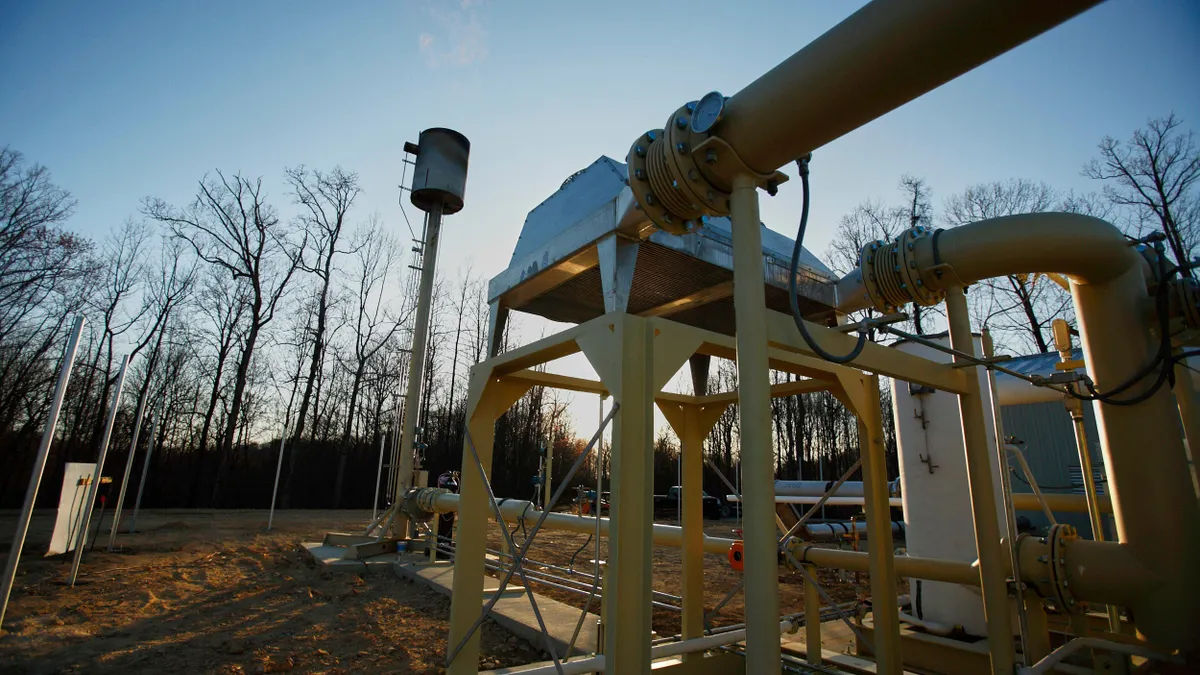John Busterud, the nominee for assistant administrator of the U.S. EPA’s Office of Land and Emergency Management, called PFAS contamination management a “high priority” and an “urgent issue” during his confirmation hearing on Wednesday.
If confirmed, Busterud said he would prioritize several initiatives related to per- and polyfluoroalkyl substances, including supporting a “polluter pays” model aimed at protecting certain entities from PFAS-related cleanup liabilities. The EPA this week acknowledged that it sees water utilities as “passive receivers” of PFAS, a term waste industry groups also say applies to their operations.
“I pledge to work with our dedicated career staff and to look at ways in which we can avoid a situation in which customers of water utilities would be forced to pay for contamination they didn't put in the water to begin with,” he said during the confirmation hearing before the U.S. Senate Committee on Environment and Public Works.
Busterud did not mention waste operators in his passive receiver remarks, but noted that “the issue of passive receivers is very important to a number of senators” on the Environment and Public Works committee.
Chair Shelley Moore Capito has cited her support in past years for waste facility operators and water utilities to receive exemptions from certain aspects of PFAS cleanup obligations under the EPA’s Comprehensive Environmental Response, Compensation and Liability Act, known as Superfund.
During the nomination hearing, Busterud also called for more frequent updates to EPA guidance on PFAS destruction and disposal methods, saying OLEM will play an “important role” in the process. The EPA has said its update process, which is currently scheduled for every three years, will now take place annually.
“I commit to working with our staff to ensure that we are and our scientists ensure that we are considering, and providing guidance on emerging technologies that have real promise,” he said.
Busterud’s hearing and focus on PFAS management issues comes just after the EPA announced it would roll back significant parts of the National Primary Drinking Water Regulation, a rule set last year that set legally enforceable limits for the six types of PFAS substances in drinking water. The EPA said it would “rescind and reconsider” four of the six chemicals named in the regulation.
It also announced it would delay compliance deadlines for the two remaining chemicals, PFOA and PFOS. The EPA has said the decision helps give drinking water system operators more time to develop plans for complying with maximum contaminant levels for the two chemicals.
During the confirmation hearing, Busterud said he would also lead efforts to prevent releases of PFAS from manufacturing facilities and examine the agency’s authority to do so under the Resource Conservation and Recovery Act.
He also expressed support for the EPA’s brownfield remediation program and said OLEM would also work on “enhancing and improving the pace and efficiency” of Superfund cleanups.
Busterud has a background in environmental law and is known for his work on policies that “that sought to balance environmental protection with a sustainable business climate in California,” he said during the hearing. That includes his time on the board of the California Council for Environmental and Economic Balance, a public policy organization meant to focus on environmental initiatives that also help grow businesses.
During the first Trump administration, Busterud was appointed EPA administrator for Region 9, which covers the Western part of the U.S. including California, Nevada, Arizona, Hawai’i and 148 tribes.
Busterud also served as an officer in the Army Reserve, retiring in 2014 as a colonel. During his testimony, he noted that he worked with the Iraqi minister of environment to develop what he said was the country’s first environmental regulatory programs.
Busterud also mentioned his family ties to environmental policy. His father, John A. Busterud, was a Republican assemblymember in California and served as chairman of the Council on Environmental Quality under then-President Gerald Ford.
OLEM is at the forefront of waste and recycling industry policy at the national level, but official OLEM assistant administrator leadership has been up in the air for several years. There was no Senate-confirmed assistant administrator throughout the entire Biden administration after the nomination process stalled for its previous nominee, Carlton Waterhouse. Waterhouse eventually announced he would leave the agency.
Peter Wright, the assistant administrator during the first Trump administration, also faced a long nomination process that took 16 months to approve in Congress, in part because of opposition from Democrats.




















